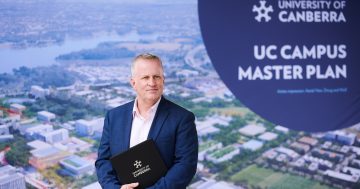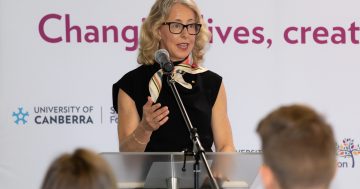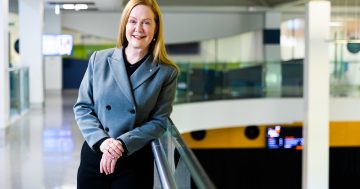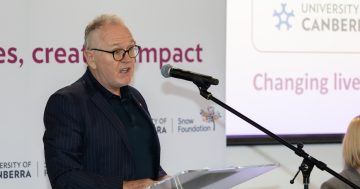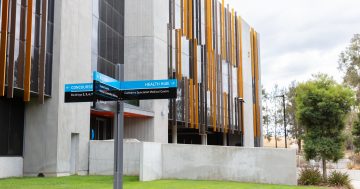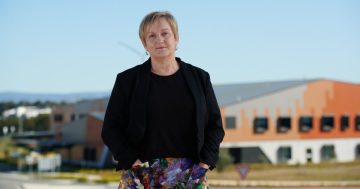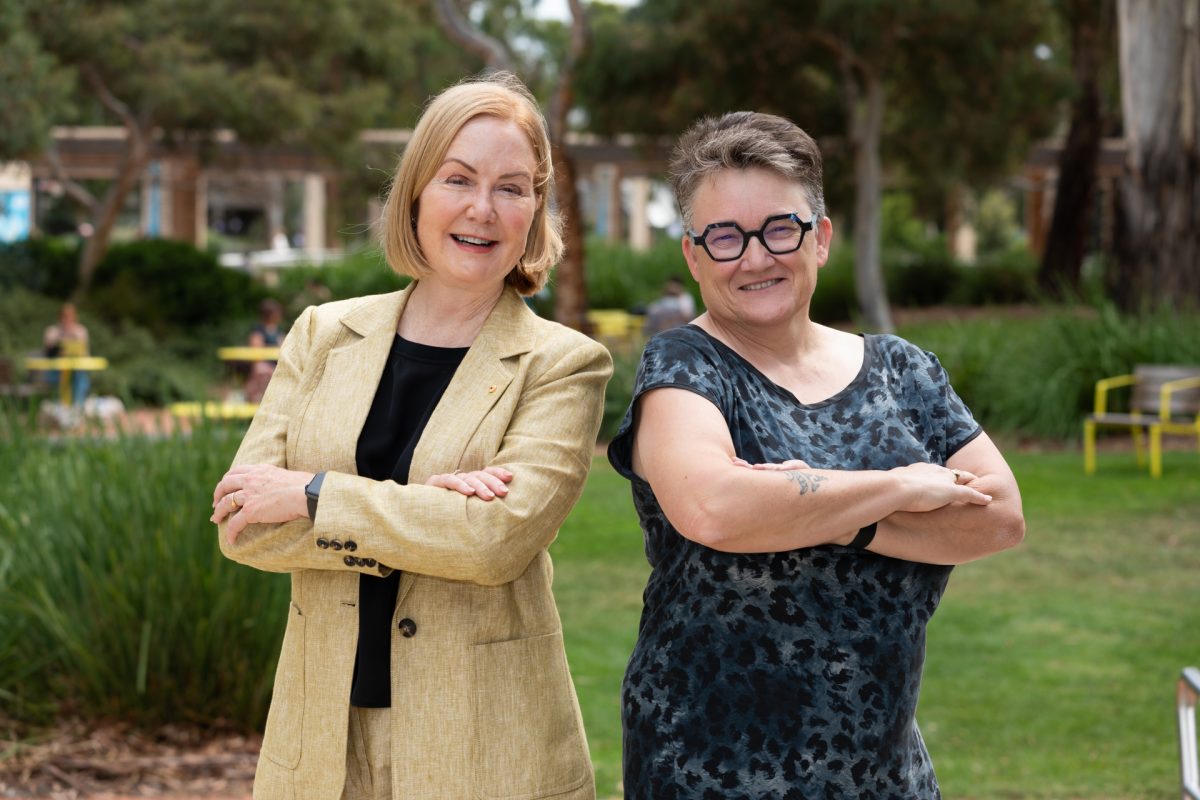
University of Canberra chancellor Lisa Paul and interim vice-chancellor Professor Lucy Johnston both have big visions for the university. Photo: Michelle Kroll.
On my way to interview the University of Canberra’s new chancellor, Lisa Paul AO PSM, and interim vice chancellor Professor Lucy Johnston, I run straight into the glorious chaos of graduation ceremonies.
Graduates of all ages are beaming, clad in gowns and mortarboards, juggling huge bouquets of flowers, and surrounded by family and friends as they celebrate years of hard work and achievement.
It’s a sight that gladdens the hearts of the university’s leadership team.
“The student speaker in the graduation ceremony we’ve just participated in came from a family of seven siblings with a single parent, a mum who was living with an intellectual disability in public housing from regional NSW.
“His family would never have dreamed of going to university. He used the words ‘levelling the playing field’ about his education – it was incredibly moving,” the new chancellor said.
The University defines its purpose with the Ngunnawal word Galambany, meaning “we are together as one,” Ms Paul noted.
She comes to the role after a lengthy and distinguished career in the public service, culminating as secretary of the Department of Education and Training. Both Ms Paul’s parents were educators and her belief in the transformational power of education runs deep.
She’s been a Canberran since the 1970s, a proud citizen and promoter of the nation’s capital.
“I am so attracted to the view that this is Canberra’s university, the university for this place,” she said.
“I love that we are aspiring to be Australia’s most accessible university and have already twice in a row – in 2021 and 2022 – been ranked number one in the world for reducing inequalities in the Times Higher Education Impact Rankings.”
Professor Johnston explained the rankings derive from multiple measures reflecting research on social inequity, their policies on discrimination and commitment to recruiting staff and students from under-represented groups.
“The university takes in students from a whole variety of backgrounds and through the way we offer education, including our Work Integrated learning approach across all degrees, we reduce inequalities in terms of skillsets and graduate opportunities,” she said, noting that UC has the highest graduate employment rates and starting salaries for graduates in the ACT.
This doesn’t diminish the focus on quality in education and research, honed through an individual approach to supporting all students throughout their degrees.
More than 90 per cent of allied health workers in Canberra graduate from UC and results are similarly high for teachers and other vocational degrees. The approach is all about developing workplace skills that set up professional careers with hands-on experience and relevant research.
A project is brewing that will examine how UC’s research impacts all aspects of a Canberran’s life, from health care to school curriculum, park and urban design and more.
Both have big visions for the university, many of them related to digital learning but also enhancing the university’s large bush block at Bruce through the university’s Campus Master Plan. Better networks between universities and other tertiary educators to link qualifications are another priority.
“We try to be local – to think global but act local,” Ms Johnson said.
“We want to make the campus a place where people feel connected as well as a magnet for inclusivity and the partner of choice for under-represented students and staff,” Ms Paul added.
“I would like the culture to be as strong and positive as it is now. There’s a very special organisational culture here, I was blown away in my first few months. People like each other and want to work together on behalf of the whole university.”












